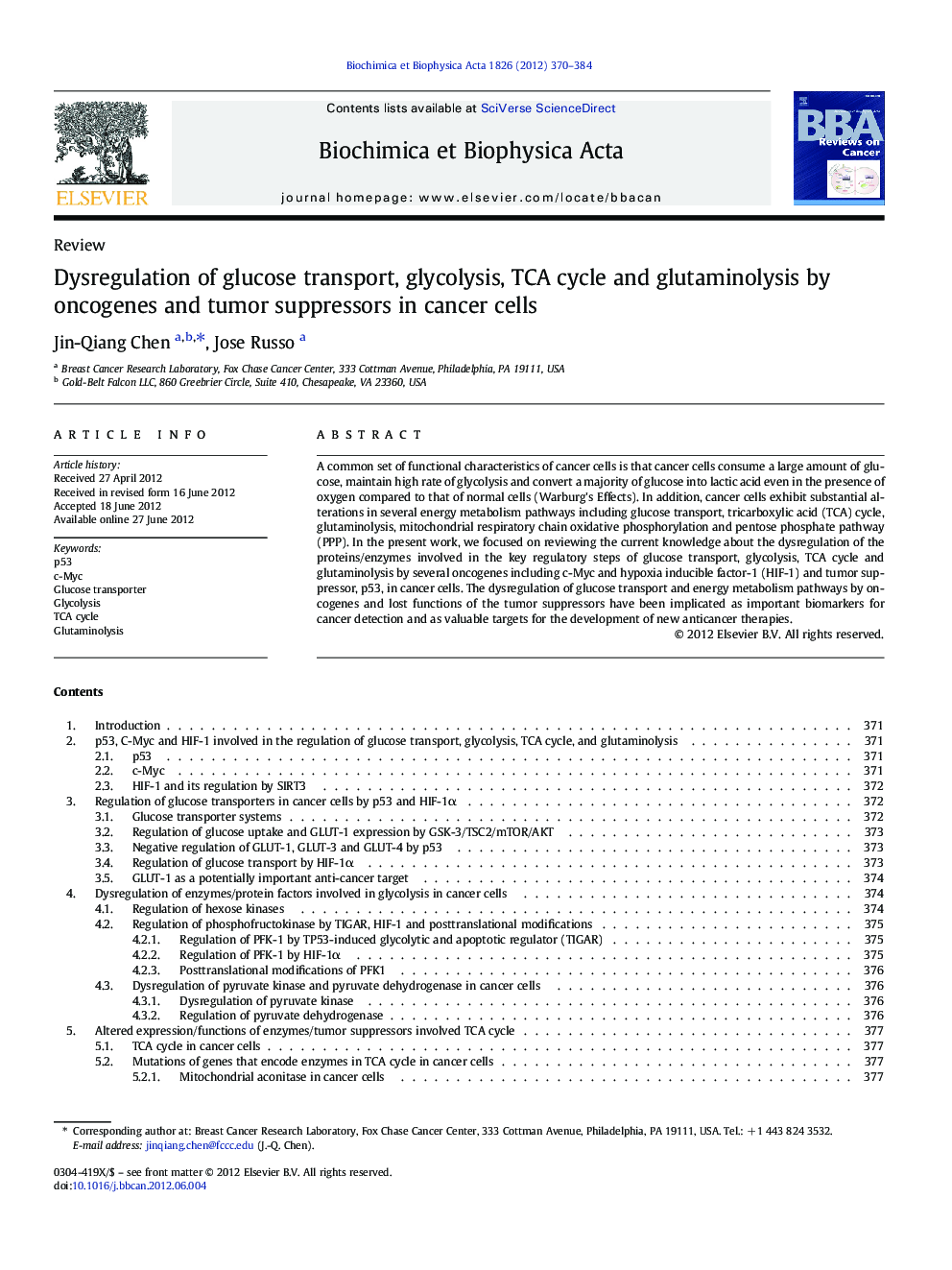| Article ID | Journal | Published Year | Pages | File Type |
|---|---|---|---|---|
| 8429489 | Biochimica et Biophysica Acta (BBA) - Reviews on Cancer | 2012 | 15 Pages |
Abstract
A common set of functional characteristics of cancer cells is that cancer cells consume a large amount of glucose, maintain high rate of glycolysis and convert a majority of glucose into lactic acid even in the presence of oxygen compared to that of normal cells (Warburg's Effects). In addition, cancer cells exhibit substantial alterations in several energy metabolism pathways including glucose transport, tricarboxylic acid (TCA) cycle, glutaminolysis, mitochondrial respiratory chain oxidative phosphorylation and pentose phosphate pathway (PPP). In the present work, we focused on reviewing the current knowledge about the dysregulation of the proteins/enzymes involved in the key regulatory steps of glucose transport, glycolysis, TCA cycle and glutaminolysis by several oncogenes including c-Myc and hypoxia inducible factor-1 (HIF-1) and tumor suppressor, p53, in cancer cells. The dysregulation of glucose transport and energy metabolism pathways by oncogenes and lost functions of the tumor suppressors have been implicated as important biomarkers for cancer detection and as valuable targets for the development of new anticancer therapies.
Related Topics
Life Sciences
Biochemistry, Genetics and Molecular Biology
Cancer Research
Authors
Jin-Qiang Chen, Jose Russo,
